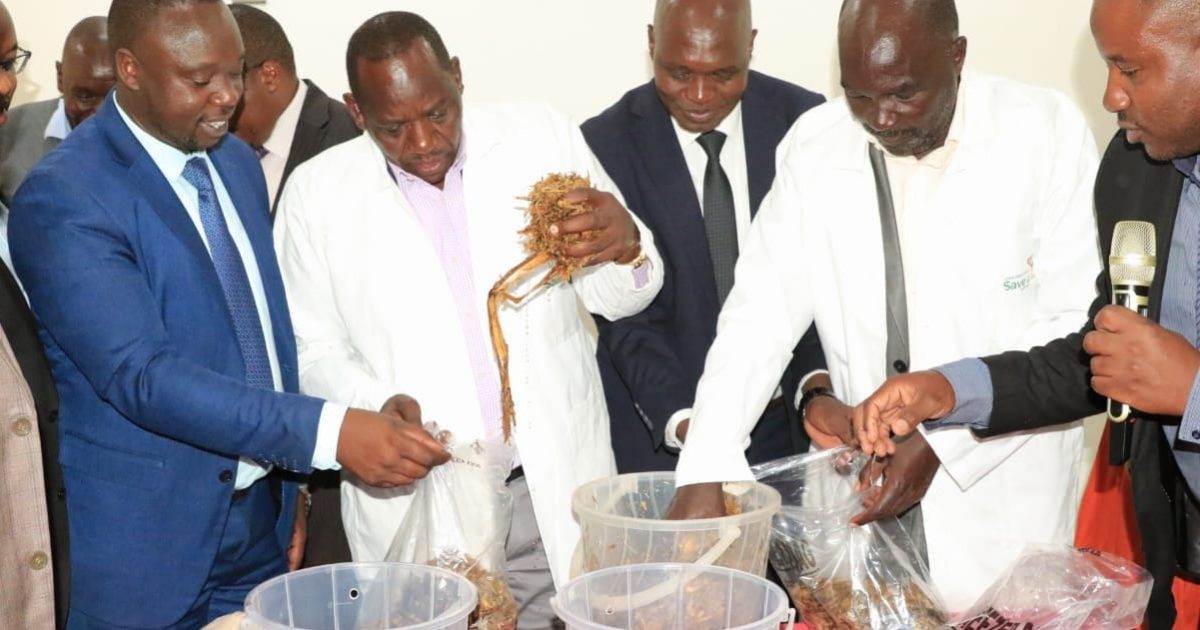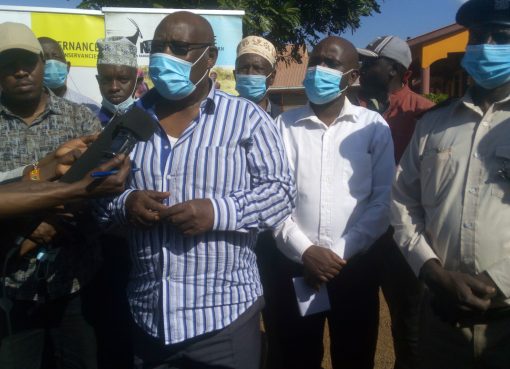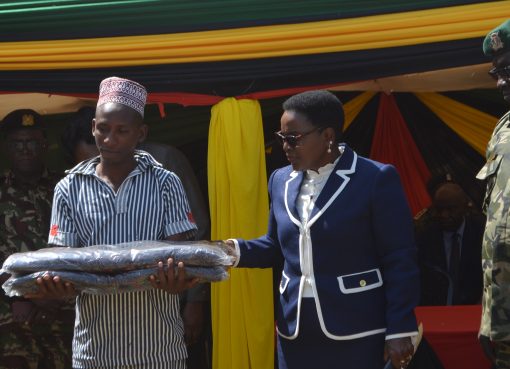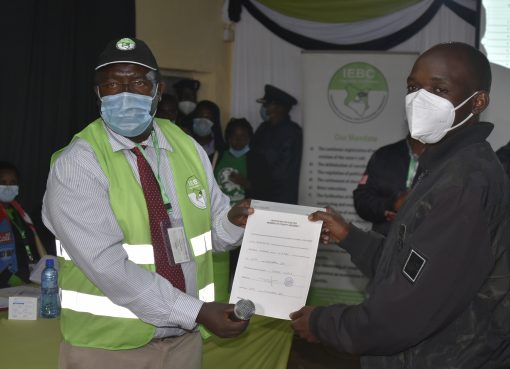Uasin Gishu County Administration in collaboration with the Kenya National Chamber of Commerce and Industry (KNCCI) and the Mushroom Growers Association of Kenya (MGAK) have come up with deliberate plans to empower farmers particularly the youth in Uasin Gishu to diversify and venture into mushroom farming as a way of creating employment to boost their livelihoods standards.
Speaking during a stakeholder engagement with the KNCCI Uasin Gishu chapter team together with a delegation of experts from the MGAK in Eldoret, Governor Dr. Jonathan Chelilim commended the initiative by the stakeholders on exploring the potential of mushroom farming as a sustainable and lucrative venture for the farmers.
He noted that the county, as a vital agricultural hub, has long relied on single crops like maize and wheat for sustenance yet there is a recognized need for diversification.
“The experts highlighted mushrooms as a high-value crop, medicinal, requiring minimal space and boasting a short one-month growth cycle. This quick turnover will allow for speedy harvests, presenting our farmers with the opportunity for a consistent and more resilient income stream, thus a good initiative we need to adopt,” he said.
“We want to encourage the youth to capitalize on this venture as it requires a very small piece of land like in the backyard of your room (singira) and you can get money because prices are very good and the market is ready,” added Dr. Chelilim.
In his remarks, Deputy Governor Eng. John Barorot expressed concern that the only key challenge would be availability of seeds.
“As a county, we want to look at how we can make the seeds for mushrooms available such that we can enhance the uptake of mushroom growing in Uasin Gishu,” noted Eng. Barorot.
KNCCI Uasin Gishu Chapter Chairman Mr Willy Kenei pointed out that the engagement between the chamber, county and the MGAK is looking at the potential of mushroom production and its viability in terms of large-scale industrial production in Uasin Gishu.
“Mushroom farming is a venture that we can really encourage our youth to do as a form of employment. It is possible since its farming needs a very small space and capital to start up,” he said.
Kenei noted that the market for mushrooms is huge as he affirmed the Chamber’s commitment to provide market linkages for both local and international markets for the mushrooms, adding that the stakeholders team had recently returned from China where they trained and benchmarked on mushroom farming.
He lauded the county government for its commitment to fully support the programme in order to support the youth to take up the venture.
On his part, Agri Africa Expo Chief Executive Officer (CEO) Tito Mutai who is also one of the people taking centre stage in terms of improving the mushroom value chain in Kenya, indicated that the mushroom market in Kenya is really huge since there is still a huge deficit in terms of what is consumed and what is produced locally.
“We want to produce more mushrooms so that we are able to satisfy the local deficit and then look at the export market because there is great potential of us conquering the export market and becoming a leading exporter of mushroom and mushroom products,” he said.
He explained that the implementation cost of mushroom farming among the youth is affordable, as it requires a very small space of about 6 by 5 square metres which is enough to produce 50 kilos every week which translates to about Sh780,000 per year.
“This is something the youth can really tap into. The only thing that it requires is their time but very minimal investment. The county government, the Chamber of Commerce, Mushroom Growers Association of Kenya will be available to help them get a guarantee of market,” added Mutai.
Paul Kisiang’ani, an expert in mushroom production, alluded that mushrooms were a source of nutritious food that has high medicinal value, particularly for improving heart health.
“When we talk about universal health care and primary health care interventions, we bring in mushrooms as its production would help improve the health of our communities and the entire county,” he said.
He emphasized the need to encourage farmers to indulge in mushroom growing as its production, besides nutritional benefits, would also go a long way into developing a vibrant industry for the production of medicinal products that will help generate income, create employment and also boost foreign exchange coming in through export of mushroom medicinal products.
“This is a great initiative that is going to transform lives and is also associated with the health of nerves,” added Kisiang’ani.
By Ekuwam Sylvester





